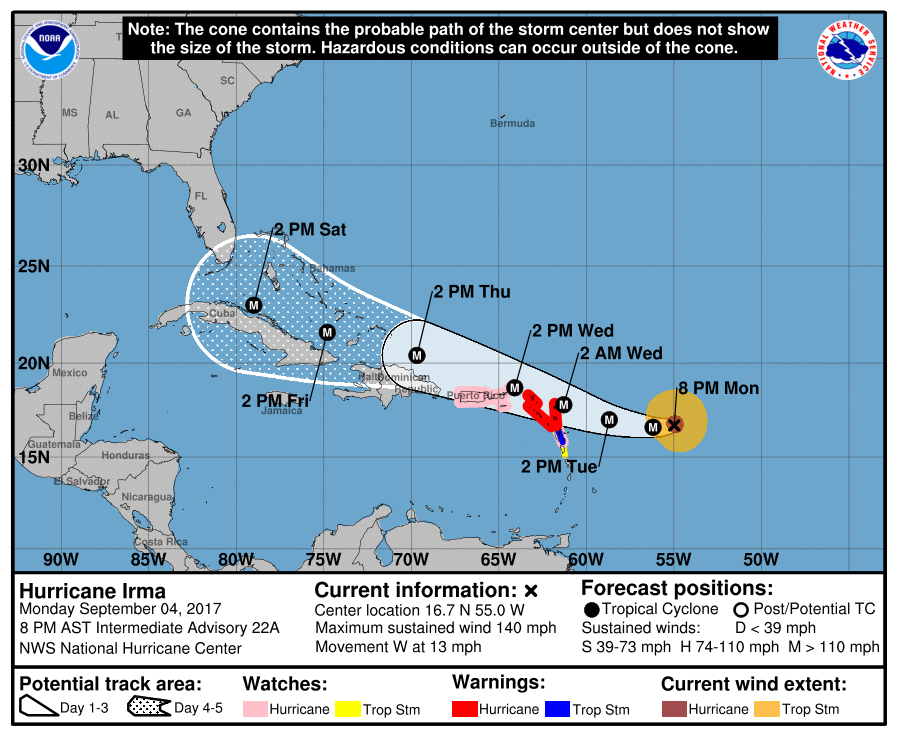I'm not a meteorologist, but the National Hurricane Center's outlook for Hurricane Irma is incredibly scary. It looks like it will draw a line all the way through some of the poorest and most desperate countries before slamming into Florida. This is forecast to be a Category 4 Hurricane, the second highest category on the scale. Traditionally, the US is one of the first and strongest forces on the ground to help in the Caribbean. With the current political leadership (or lack thereof), accompanied by the ongoing effects of Harvey, and the potential for Irma to hit the US mainland as a major hurricane, this has all the makings of a humanitarian disaster.

What can you do if you're in the area?
- Evacuate if you can. Getting out of the area is the safest thing to do. If you're a tourist, business person, or international traveler with the means to get out of the area, do so as soon as possible.
- If you can't evacuate, hunker down. Find a safe building as far away from the expected path as possible, and make sure you have supplies ready. Usually 72 hours is enough, but given the circumstances here, I'm suggesting that you be prepared for 96-120 hours (4-5 days).
- Help if you can. Anything you can do to make things easier for the people around you before, during, and after Irma blows through will help in the long run. Don't get in the way of professional rescuers when they're working, but if you can support them in any way, then do so and let them focus on their job.
What can you do if you're not in the area?
- Give what you can. Be prepared to make monetary donations to groups who are working on the ground in the affected areas. Local groups will know what the needs are and will have the connections to make sure the money gets to the people who need it. Where they can, many local groups will use local employees and companies, helping to not only get the larger community infrastructure back up and running, but the local people and businesses that sustain that community.
- DON'T GIVE STUFF. An area that has been decimated by a hurricane doesn't have the people, infrastructure, storage, or distribution capability to hand out random junk that people have donated. Even though it is with the best of intentions, a flood of merchandise (stuff) takes valuable resources away from making sure people have the essentials. Nobody wants your old jeans when they don't have anything to eat or clean water to drink.
- If you are deployed, be as self-sufficient as possible. Bring as much of your own things as possible so that you don't put any unneeded stress on the local system. Most importantly: DON'T SELF-DISPATCH. It's hard enough to coordinate the resources that are expected and requested without having ones that you don't know about show up.
This looks like it could be a hurricane season for the record books, and help will be desperately needed in many places. Do your best to help, not hinder the response to these disasters.